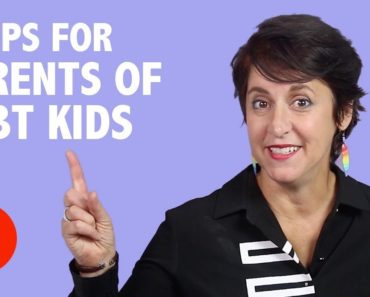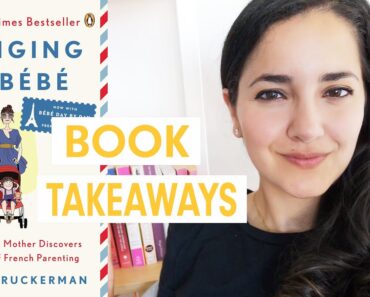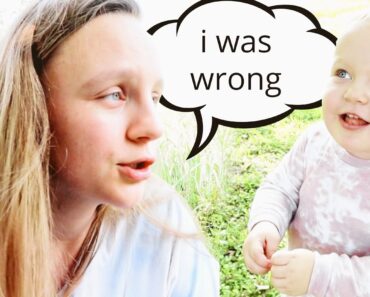“You can only have that if you finish this.”
When it comes to how we as parents should talk to our kids about food, it can feel intimidating and confusing to know what to say. The discourse created in the home plays a significant role in how children feel and think about food, which ultimately plays a vital role in how children think and feel about themselves and their bodies.
Part of what makes this area of parenting so challenging is the overwhelming amount of mixed messaging we’re bombarded with about food, bodies and what is “healthy.” It’s almost impossible to know what to say, what not to say, what to do, and what not to do to cultivate safety in our homes for our children (and us).
As an eating disorder therapist, I spend a lot of time talking with parents about the language and behavioural patterns surrounding food and the body and the impact this has on children (of all ages).
The messages we send our kids about food
First, there isn’t one right way to talk about food, but there are some fundamental ways to make food safe in the home. I always ask parents to consider their own biases and practices about food, how they were taught or what they were told about food when they were growing up and how it impacted them.
Some parents believe, “No dessert until you finish all your dinner,” whereas others approach, “If you do this, I’ll give you a treat.” Some parents speak about the value of having regular family meals together, while others talk about their kids having to fend for themselves at meal times. I have parents tell me about how they feel like a short-order cook, accommodating each family member’s different food needs, while others take the approach of “This is what we’re eating, so eat up!”
Even saying things like, “Dad doesn’t eat carbs,” “Sugar is bad,” “She’s such a great eater, eating so many veggies,” and “I’m on a diet, I can’t have that” send strong—potentially confusing — messages to our kids.
The messages we send our kids about body confidence
Also, consider how you, as a parent, talk and feel about your body and other people’s bodies. “I look so bad in this,” “I’ve gained so much weight,” or “I’ve lost so much weight.” Body talk deeply infiltrates our children’s understanding of what is acceptable, what is good, what is beautiful and what is not.
Fostering body acceptance and body positivity is hard. But recognizing your own beliefs and practices about food and the body is the first step in making change. Awareness is key. Once you realize your thoughts about food, it will allow you to understand more about your biases and the messages you give to your kids. So now what?
How to foster a safe and healthy relationship with food and our bodies
What if food could be more neutral? What if how people’s bodies look — however they look — could be more neutral? What if we could raise our children to have ease with food, express their feelings openly and love their bodies? This would be gold, and this is what my ultimate hope is for all parents and their kids.
Instead of calling food good or bad, let’s call it “food.” Instead of calling it “junk food,” let’s call it “food.” Instead of calling it a “treat,” let’s call it “food.”
A shift happens when we label things more neutrally. Those labels lose their power. Kids start to learn that they eat all foods and that there’s a place for all food. So if you never pack the cookie in your kid’s lunch, pack it. Because likely most kids have some dessert, and this allows your kid to feel more normal. And if having a cookie in their lunch is as standard as having the sandwich, veggies, and fruit, that cookie isn’t so powerful anymore — it’s just another food that is a part of lunch.
It also means that your kid won’t come home and sneak all the cookies when no one is looking because they know they get one every day in their lunch. Cookies are not forbidden. The cookie loses its power and becomes like the sandwich and the veggies or fruit.
There are also many exciting ways to support the magic of food with kids. Again moving away from good and bad and into language like, “Did you know that when you eat carrots, your eyes will be able to see way farther?” Then eat the carrots with them, tell them what you can now see because of it and ask them what they can see even better.
Another great way to get kids interested in the magic of food is cooking and baking with them or getting them to help make their lunches the night before for the next day. When kids are involved in creating meal times, they see the magic of mixing different ingredients and what results.
Remember, if we deny certain foods, we encourage our children to want them more and believe they’re wrong and bad for eating them or liking them. We want to help our kids feel at ease around food and not feel shameful about what they like. At mealtime, instead of telling kids to finish everything on their plate, try seeing what happens if we say, “How is your body telling you that you are full?”
Note: It is expected that sometimes kids eat an adult portion (or more), and sometimes kids eat only a couple of bites (based on age or stage of life and development).
How to encourage body neutrality
The same idea goes for neutralizing bodies. Start sharing about your body beyond how it looks so you can foster the importance of body connection beyond the value of appearance. Try to say things like, “I was able to get more work done today because I let my body go to bed earlier so it could have more rest. I needed it.” Or, “I see how my body can run farther now because I have been practicing my running for a while now, and it’s getting stronger.” Or making a point to compliment others beyond what they look like, “You are always kind and offer to help,” or “You are such a great listener.”
Even talking about the connection between our bodies and our feelings can be helpful. For instance, “I know I’m sad because my heart feels sore,” or “I know I’m nervous because my stomach feels woozy,” or “I know I’m sick because I’m tired and my throat hurts.” This way of talking about the body teaches kids that we are so much more than how our bodies look.
What a big responsibility it is to feed our kids and to teach them body acceptance, right? What big, important relationships we, as parents, cultivate for our children. It’s a lot. And it’s hard. And it will never be perfect. But it can be easier and safer, more honest and open, more neutral for them and you.
Learn more about Kyla’s personal journey in our feature with her, Eating Disorders and Pregnancy | What It’s Like
Kyla Fox is an Eating Disorder Specialist, survivor, and advocate who reframes the ways that we think about and treat eating disorders. Kyla, herself, struggled with an eating disorder and an over-exercise addiction in her late teens. On her quest to find help, she experienced large care gaps and fundamental flaws in the treatment and recovery approach, preventing her from getting the help that she needed.
It, therefore, became Kyla’s mission to become the therapist she would have wanted to have had in her own recovery. Kyla is a Master’s-level clinician with degrees from both the University of Toronto in the Masters of Social Work program and an Honours Bachelor of Arts degree in Women’s Studies.
In February of 2012, after 10 years of private practice, Kyla established The Kyla Fox Centre, – the first of its kind eating disorder recovery centre – now fully virtual since COVID. Kyla, and her multidisciplinary team, treat those directly affected by eating disorders, along with supporting families, parents, and loved ones.
The centre provides individualized care that spans the spectrum of intensive outpatient treatment all the way through to long term maintenance. Every day, Kyla and her team are saving lives. With such deep and varied experience in the field, Kyla is regularly called on by Canada’s top media outlets as a special commentator on a broad list of topics, including eating disorders, self-esteem, women’s health, body image, pregnancy, body confidence and more. For more information, please visit www.kylafoxcentre.com.
Get parenting news, expert advice, info on secret sales, discounts and the best-ever products. Sign up for the Today’s Parent newsletter.

































